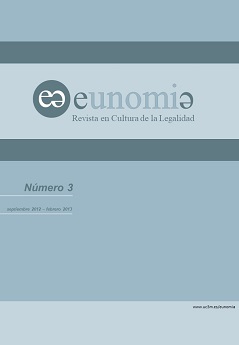Secular and legality
Abstract
To distinguish between a normative Rule of Law versus a simple rule by law, the State must satisfy and be organized by four indispensable principles: primacy of the law and law’s empire; democratic deliberation and public responsibility of public officials; judicial independence with mechanisms of constitutional control; and recognition and promotion of fundamental rights. My purpose in this essay is to elaborate on, and defend only two of the four principles that together make the rule of law: primacy of the law and public deliberation. I will argue that the first of these elements is founded on the notion of personal autonomy: in order for the citizen of the nation-state to be able to fully develop and legally and legitimately pursue her own notion of the good life, the State must not—indeed, cannot—arbitrarily change what it deems to be legal and legitimate. The principle of public deliberation, on the other hand, is anchored to the liberal idea of secularism: the norms, rules, laws that are to bind us together as a political community must be discussed rationally and reasonably, making sure that the product of those deliberations—and the arguments put forth—do not annihilate the possibility of pursuing certain life plans that should be otherwise deemed valid and legitimate.
Downloads
Eunomía. Revista en Cultura de la Legalidad is a duly registered journal, with EISSN 2253-6655.
The articles published in Eunomía are –unless indicated otherwise– under a Creative Commons Attribution-No Derivative Works 3.0 Spain license. You can copy, distribute and communicate them publicly as long as you cite their author and the journal and institution that publishes them and do not make derivative works with them. The full license can be consulted at: http://creativecommons.org/licenses/by-nd/3.0/es/deed.es




